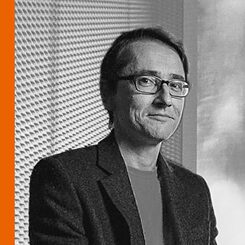Mario Klingemann
Mario Klingemann is an artist who uses algorithms and AI to create and investigate systems. He is interested in human perception of art and creativity and methods in which machines can augment or emulate these processes. His research therefore spans many areas including generative art, cybernetic aesthetics, information theory, feedback loops, pattern recognition, neural networks and storytelling.
Website Twitter Instagram
My favourite AI in culture project at the moment is… GPT-3 by OpenAI. Whilst this might not appear as a dedicated "culture project" I think it is since it encapsulates the cultural heritage of the written word given that the model has been trained on what is currently the biggest corpus of human written texts of the past centuries. Whilst the interface is rather simple it allows to explore ideas and writing styles in an unprecedented way.
By 2030 I would like to have an AI app which… allows me to interact with it by mere thinking. I want AI to be like a memory and imagination expansion module that allows me to think outside the box.
My worst AI nightmare is… that it might turn out to be ultimately limited by human imagination and prejudice.
The future of AI needs… to stay weird.
Mario Klingemann's contribution: “Words behave like pixels and sentences like pictures”: An interview with Mario Klingemann
Website Twitter Instagram
My favourite AI in culture project at the moment is… GPT-3 by OpenAI. Whilst this might not appear as a dedicated "culture project" I think it is since it encapsulates the cultural heritage of the written word given that the model has been trained on what is currently the biggest corpus of human written texts of the past centuries. Whilst the interface is rather simple it allows to explore ideas and writing styles in an unprecedented way.
By 2030 I would like to have an AI app which… allows me to interact with it by mere thinking. I want AI to be like a memory and imagination expansion module that allows me to think outside the box.
My worst AI nightmare is… that it might turn out to be ultimately limited by human imagination and prejudice.
The future of AI needs… to stay weird.
Mario Klingemann's contribution: “Words behave like pixels and sentences like pictures”: An interview with Mario Klingemann

